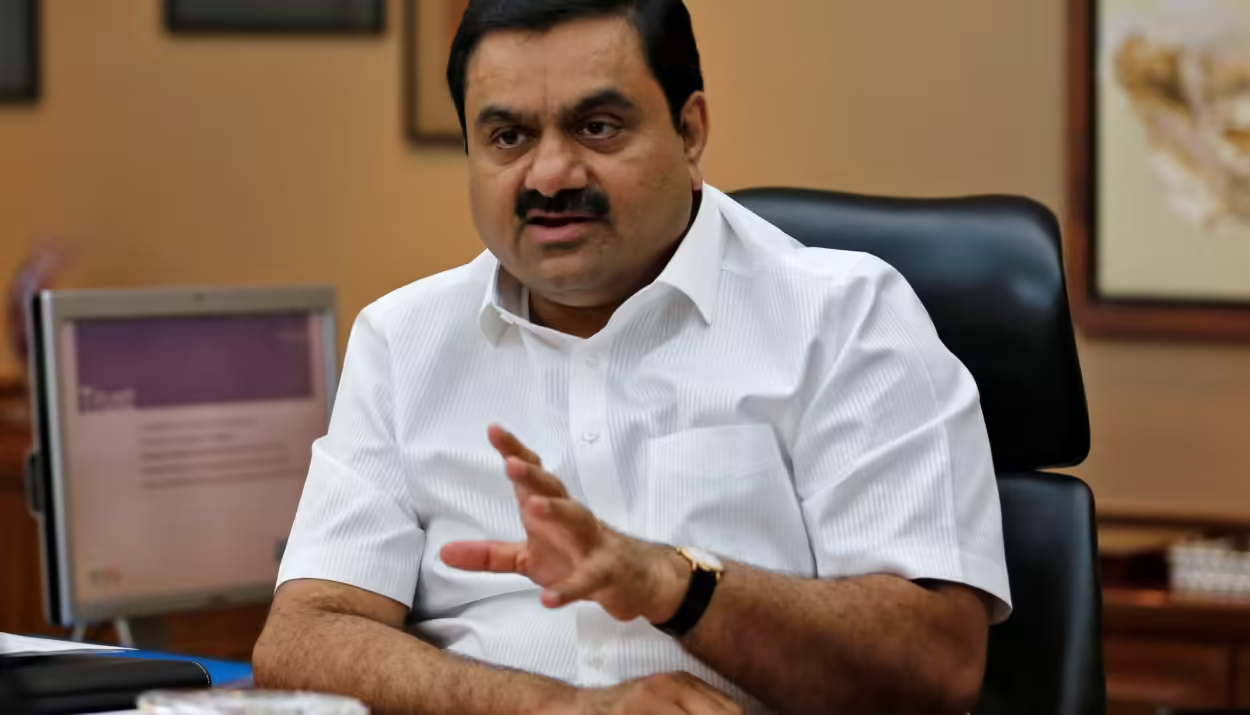Indian tycoon Gautam Adani, one of the world’s wealthiest and most controversial businessmen, has set his sights on Africa, particularly Kenya.
His latest move involves taking over Kenya’s Jomo Kenyatta International Airport (JKIA). However, this deal has sparked widespread opposition, especially among transport workers, who are concerned about job security and foreign ownership of key national assets.
Contents
Adani’s JKIA takeover
On August 30, 2024, Adani Enterprises incorporated “Airports Infrastructure PLC (AIP)” in Kenya. This subsidiary was set up by Global Airports Operator, a company based in Abu Dhabi and wholly owned by Adani Enterprises. The Kenyan subsidiary was incorporated with a share capital of Ksh6.75 million, consisting of 6,750 shares valued at Ksh1,000 each.
Adani’s ambitious plan is to operate, maintain, and modernize JKIA under a 30-year concession. The proposal includes an investment of $750 million in developing a new terminal, apron, and taxiway system, with an additional $92 million to be spent on infrastructure improvements. The plan also proposes creating a city-side development with hospitality and business centres for travellers and city residents.
However, Adani’s move has met significant resistance. Workers at the Kenya Airports Authority went on strike to protest the takeover, expressing fears over job losses and the potential loss of national control over a strategic asset.
As of now, the government is still reviewing the deal, amidst public opposition. Despite the opposition, Adani remains unswayed and is pushing forward with his expansion plans.
Adani’s African expansion
In addition to the JKIA takeover, Adani’s power subsidiary, Adani Energy Solutions Limited (AESL), has secured approval for a multimillion-dollar energy transmission project in Kenya.
This project will involve constructing and managing transmission lines across the country under a Public-Private Partnership (PPP) framework. Notably, the Kenyan ventures are not Adani’s only deals in Africa.
Earlier this year, Adani Ports and Special Economic Zone (APSEZ), the port logistics arm of the Adani Group, signed a 30-year concession agreement to operate Container Terminal 2 at the Dar es Salaam Port in Tanzania.
The $39.5 million investment gives Adani a majority stake in the Tanzania International Container Terminal Services (TICTS), a critical facility handling 83% of the country’s container traffic.
Despite the potential benefits of the African deals, including improved energy reliability and infrastructure development, concerns about Adani’s global track record loom large.
Critics highlight allegations of environmental harm, financial misconduct, and labour rights violations in regions where the Indian magnate operates.
Although Adani’s African/Kenyan ventures are part of his broader strategy to establish a global presence across key industries, a section of Kenyans fear that the country may potentially expose itself to the risks of cronyism and exploitation. This belief is inspired by the damning allegations trailing the tycoon’s operations.
Controversies surrounding Adani
In recent years, Adani’s company has expanded into markets such as Israel, where it operates the Haifa port, and Vietnam, where plans for a hub are underway. In addition, Adani Ports is the largest private port operator in India, controlling 30% of the country’s port handling capacity.
However, while Adani’s empire continues to grow, it has been plagued by mounting controversies that have cast a shadow on his business dealings and now Kenyan expansion plans.
Hindenburg report
One of the most high-profile controversies surrounding the Adani Group erupted in early 2023 when US-based financial research firm Hindenburg Research released a damning report accusing the conglomerate of widespread stock manipulation and accounting fraud.
According to the report, which Hindenburg claimed it compiled following two years of investigations, Adani Group inflated the value of its stock prices through a network of shell companies in tax havens, such as Mauritius and the UAE, while obscuring its actual debt levels.
Hindenburg’s 106-page report claimed that Adani’s listed companies were overvalued by as much as 85%, calling into question the group’s financial transparency. The fallout from the damning report was a massive selloff in Adani stocks, wiping out more than $100 billion from the conglomerate’s market value. Consequently, Adani’s net worth was also halved
Though the Adani Group strongly denied the allegations, calling the report a “calculated attack on India,” the fallout led to increased scrutiny from regulators. India’s Securities and Exchange Board (SEBI) launched investigations into the group’s operations.
Environmental violations
Adani’s businesses, particularly in the energy and infrastructure sectors, have also faced criticism for environmental violations. Many of the conglomerate’s projects, from coal mining to port construction, have been accused of contributing to ecological degradation, with Adani’s Carmichael coal mine in Australia being the most controversial.
The Carmichael mine, located in Queensland’s Galilee Basin, has drawn sharp criticism from environmentalists, indigenous communities, and global activists due to its expected impact on the Great Barrier Reef and its contribution to carbon emissions.
The mine, which began construction in 2019, has been projected to produce 10 million tons of coal annually, raising concerns about its carbon footprint. This, at a time when the world is grappling with climate change. In addition to this, Adani’s coal ports in India have been accused of violating environmental laws.
For example, the Adani Group’s operations at the Mundra Port in Gujarat, India, are said to have caused serious environmental damage, including the destruction of mangroves, and marine ecosystems, and increased pollution.
A 2013 government report found the Adani Port guilty of environmental violations, though the group has largely brushed off these concerns, terming them business hurdles.
Labor and human rights violations
Another area of controversy is the Adani Group’s labour practices. The conglomerate has been accused of poor working conditions, low wages, and labor rights violations at several of its project sites.
Labour unions, particularly in India, have long protested against Adani’s treatment of workers, especially in sectors like construction and energy.
For instance, the Carmichael mine was marred by accusations of unsafe working conditions and disputes over worker pay.
In India, labour unions have often clashed with the group over alleged exploitative practices, with workers in Adani-controlled ports and power plants claiming they face long hours, poor safety standards, and inadequate wages.
Political ties and cronyism
Adani’s rise to prominence has also faced criticism on account of his close ties with Indian Prime Minister Narendra Modi.
Critics allege that the mogul’s businesses have benefited disproportionately from government contracts and favourable regulatory conditions since Modi came to power in 2014.
This has led to accusations of crony capitalism, with some suggesting that Adani’s political connections have helped him secure lucrative contracts in strategic sectors like airports, ports, and energy.
For instance, Adani Enterprises was awarded contracts to operate six major airports in India, despite having little experience in the sector before 2018. Critics have questioned the fairness of these tenders, particularly given the scale and importance of these infrastructure projects to India’s economy and the fact there are other more experienced players in the sector well suited for the job.
That is not all, Modi’s government has also been accused of shielding Adani from scrutiny. Despite the serious issues raised in the Hindenburg report, India’s opposition leaders say the government has been slow to act against Adani. They attributed this to his ties with the ruling class.
Adani’s close ties with Modi have fueled concerns about cronyism in India. Critics worry that similar political connections could influence his deals in Africa. It remains to be seen whether the Indian mogul can overcome the opposition and criticism he is facing and establish a strong foothold in Africa.






